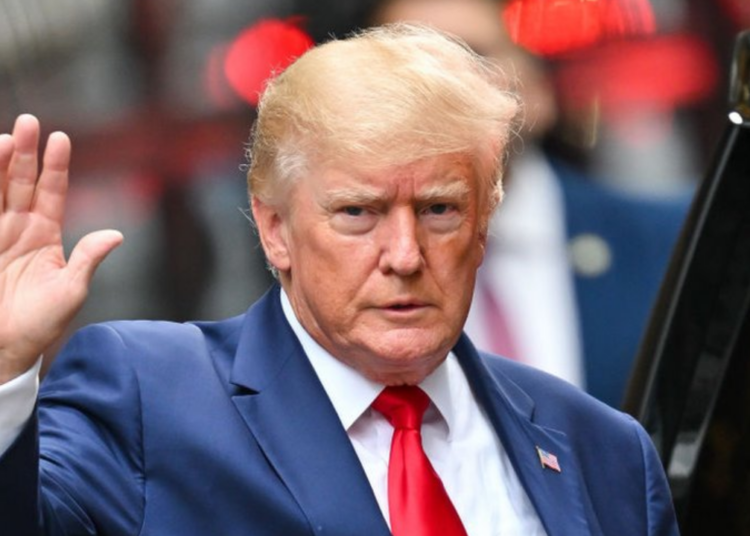As the populace prepares to participate in one of the most contentious presidential elections ever witnessed in the United States of America the challenge confronting the system of governance, that has been preserved for over two centuries, is one of the survival of public tolerance. The development of the USA as a modern democratic state is based on the assemblage of the descendants of immigrants from several different parts of the world living together as equals. This is in spite of the fact that its historical foundation was laid by men who committed genocide against the indigenous peoples and violated the human rights of enslaved peoples to build the nation. The integral legacy of divisive ideological sentiment that the historical reality of the American experience generates has been continuously modified and resisted by the leadership of the nation in order to maintain the existence of liberal tolerance as the basis for the survival of the republic. A comprehensive study of the rhetorical conventions and administrative standards of most of the outstanding leaders of America, men like George Washington, Abraham Lincoln, Franklin Delano Roosevelt, or John F. Kennedy will reveal that the preservation and maintenance of this objective is the basis for the continued evolution of the American dream. However, in today’s contest one of the major candidates, Republican Donald Trump, has decided to promote blatant chauvinism as the keynote principle of his own campaign for victory, and his strategy appears to have found a substantial amount of support. An important element of this electoral reality is that Donald Trump’s irrational rhetoric is more attractive to the chauvinistic American voter than the rational common sense arguments of his rival Kamala Harris who is a first generation citizen of immigrant parentage.
Without openly declaring it Trump set out to portray Kamala Harris and her supporters as being un-American elements who are unwilling to consider the glorification of the history of American conquest as being proper. In promoting this psychological attitude with the campaign cry of “make America great again’ or “America first” his intention is to evoke widespread support for sentiments of national glorification in the political space that will portray him as the champion of global superiority. Kamala Harris by contrast he denigrates as being a reticent American leader because she advocates consultation and collective discussion as tools for global engagement while he boasts that he will achieve international peace through personal intervention. The major danger emanating from this strategy is that Donald Trump has an effective grasp of the manipulative use of the established media. By deploying this advantage, he may be able to convince just enough voters and political operatives who are in the system that his conceit is relevant. The consequence of such an informational strategy could very well be a contested electoral outcome, which Donald Trump will use to claim a disputed victory as he tried to do in 2020. In his campaign this time around he has claimed that in any such dispute he will be the natural complainant since according to him Kamala Harris has actually promoted the growth of criminality in America. The consistency and vehemence of Trump’s provocative rhetoric makes it plain that if the election is closely resolved in Harris’s favour he will not accept the result even though all polling so far indicates that that could be the result. Donald Trump’s rhetorical protest over the presumption of electoral fairness is actually a dysfunctional tactic, which is designed to disrupt the announcement of results if he loses. His main strategy is therefore to make so much noise that the electoral authorities might be stampeded into declaring him victorious.
No matter how it is crafted a Trump victory in the next American Presidential election would be a life-changing event for all Americans, especially because his objective is an unusually vengeful return to high office. The perception of Kamala Harris’s victory would be equally life-changing for different reasons but it is tragically obvious that because of the usual conventions of electoral traditions in that country Donald Trump could manipulate a victory. Harris’s disadvantages as a woman and a member of a racial minority are major obstacles. Her response to the Trump challenge has been very circumspect as she has shown courage in her ability to identify his faults of conduct and listed acts carried out and statements made by him that are certifiable evidence of instability. The unfortunate thing is that Trump appears to have identified a trend among the Americans in which people are excited by conceited boasting and self-promotion by showmen and he is a consummate showman. If the 2024 election is to achieve positive growth for the future of tolerance and harmony in the American system of governance it is difficult to see how a Trump victory can effectively serve this purpose. He has openly promised to work against a rational policy of immigration and promised to treat world trade as a hostile adversary of America’s domestic market. He has even promised to weaponise and use the American Department of Justice against his political opponents and he has a record of doing what he says he will. Those of us watching this contest from Africa must remember that we are the nations he characterised with a curse word during his first term and who the Trump ideology regards as second class or lower on the world stage. As the election draws closer Donald Trump’s path to victory appears to be a difficult but not impossible one and the world is watching in amazement.





